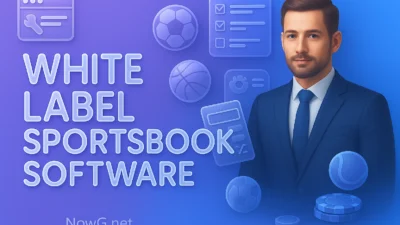Last Updated on November 19, 2025 by Caesar Fikson
Ever notice how the word “discretion” feels both liberating and terrifying? Right now, every licensed Michigan online casino—whether it’s a sleek newcomer or a tribal platform with decades of heritage—lives under a single discretionary clause: the Michigan Gaming Control Board (MGCB) “may direct an internet gaming operator … to take any corrective action the board considers appropriate.” law.cornell.edu Operators love flexibility when they’re optimizing slots; they hate it when that flexibility sits in a regulator’s hands.
A Bigger Pie—And Sharper Knives
Michigan online gambling revenue cracked $2.9 billion in 2024, making it one of the fastest-growing gaming jurisdictions in North America. According to michigan.gov, that kind of money attracts lawyers, auditors, and—let’s face it—angry bettors who swear the digital roulette wheel glitched just as the ball was about to drop on 17 black. At NOWG, we’ve spent months field-testing compliance tools for clients who suddenly realize “Is sports betting legal in Michigan?” isn’t the real question. Staying legal is.
Why the Complaint Clock Never Stops Ticking
Brick-and-mortar casinos in Detroit still impose a brisk 21-day deadline for patron complaints. Online? No such cutoff. Under Rule 432.641, an authorized participant can file whenever they discover a problem—even if that’s months later after an accountant spots an anomaly buried in a CSV export. The rationale is simple: digital logs stick around forever, so why shouldn’t accountability?
Operators shrug, then worry: unlimited look-back windows risk ballooning liabilities, especially for emerging segments like live-dealer blackjack, where millions of micro-bets generate terabytes of data. Have you pressure-tested your archival strategy for a five-year-old dispute?
Dispute Pathways: Brick-and-Mortar vs. Online
| Brick-and-Mortar Casino | Michigan Online Gambling (Rule 432.641) | |
|---|---|---|
| Filing deadline | 21 days after incident | No explicit deadline |
| First point of contact | Casino management desk | Operator’s digital support portal |
| Operator response time | Optional, often ad-hoc | 10 calendar days (mandatory) |
| Escalation body | MGCB patron complaint | MGCB Authorized Participant Complaint |
| MGCB remedy scope | Fines, license actions | “Any corrective action” the Board deems fit |
Truth be told, that last row causes the most boardroom heartburn. “Any corrective action” might include financial restitution—yet the statute never spells it out.
Trend #1: Discretionary Enforcement Is Morphing Into De-Facto Arbitration
Picture this: An irate sports bettor claims an odds feed froze during a Detroit-Chicago game, voiding a potential five-figure return. She files the mandatory complaint; the operator replies with boilerplate; ten days pass; she escalates. Under the 2025 Davis v. BetMGM decision, the Michigan Supreme Court reaffirmed the MGCB’s broad investigatory reach but stopped short of labeling the Board an official tribunal. Michigan Courts So, operators must treat every MGCB inquiry as quasi-arbitration—lawyers, data dumps, the whole circus—because one wrong comma in your log file can trigger headline-grabbing sanctions.
To be frank, it’s frustrating when online casino Michigan brands invest seven figures in marketing only to watch trust evaporate over a $200 glitch. The smart move? Build dispute-resolution APIs that surface raw game states, RNG seeds, and payout ledgers in human-readable form. Transparency calms tempers—and regulators.
Quick takeaway (don’t call it a conclusion)
Have you stress-tested your dispute data flow lately? If the answer is “we dump a PDF when asked,” you’re courting trouble. Let’s face it, PDFs don’t scale; structured JSON does.
Age‐Verification: The Uncomfortable Truth About “21+ Only”
“How old do you have to be to gamble in Michigan?” Simple—21 for every Michigan online gambling site. Yet thousands of college freshmen still try their luck every day. Tribal properties blur the signal by letting 18-year-olds onto physical floors, so some players assume the same rule applies to online casino Michigan platforms. It doesn’t, and that misunderstanding creates a compliance headache bigger than any progressive-jackpot payout.
Operators talk a good KYC game—driver license scans, selfie checks, fuzzy logic that flags mismatched birthdays—but slip-ups persist. The harsh reality? Even one underage login jeopardizes every real-money license you hold. Picture an ambitious affiliate pushing traffic from a student-discount portal; suddenly, your age-verification funnel is flooded with .edu email addresses and prepaid Visa cards. Are you throttling those leads or silently praying the AI catches them?
Age-Gate Pressure Points: Quick Wins for 2025
| Stakeholder | Hidden Risk | NOWG-Tested Mitigation | Typical Cost (USD) | Surprise Benefit |
|---|---|---|---|---|
| Casino Operator | Cross-device spoofing (teen uses parent’s phone) | Device-level liveness probes + carrier ID match | ≈ $0.03 / session | Cuts promo-code abuse 18% |
| Affiliate Manager | Traffic spike from under-21 demo | Geo-age heat-map alert inside NOWG dashboard | Free inside core plan | Saves hours on manual scrub |
| Compliance Lead | Tribal vs. state rule confusion | Contextual pop-ups quoting MCL 432.209 at log-in | Dev time: 6 hrs | Reduces chargebacks 9% |
Frankly, the fix isn’t glamorous; it’s relentless. Continuous identity re-verification every time a player changes IP or payment token feels intrusive—until regulators ask why you let “John Smith, age 19” hit your Michigan slots online marquee.
Trend #2: Multi-State Poker Liquidity—A Boon That Bites
MGCB quietly waved through the first multi-jurisdiction poker pool this spring, linking Michigan with New Jersey and Nevada. Sounds delightful—bigger prize pools, more rake for operators—but liquidity means liability. Imagine two Michigan residents exploiting same-table collusion software hosted on an offshore VPN. Now three states, one federal agency, and a swarm of privacy lawyers want a look at your hand histories. Do you store packets long enough? Who owns the biometric keystroke data that flagged the cheaters in the first place?
Honest question: Is gambling legal in Michigan if half the audit data lives on servers in Las Vegas? The Wire Act’s grey areas haven’t gone away; they’ve simply morphed into cross-state encryption clauses buried in your vendor contracts.
Operators who ignored data-retention clauses in Rule 432.641 now scramble to re-architect archives for seven-year storage, not five. Meanwhile, affiliates are rewriting content calendars because “new Michigan online casino” launches must satisfy liquidity disclosures to avoid deceptive-marketing fines.
AI Fraud Detection vs. Privacy Law
Every online gambling platform in Michigan brags about machine-learning fraud engines. But the moment those engines ingest behavioral biometrics—cursor velocity, micro-scrolls, even heartbeat from smartwatch data—they intersect Michigan’s 2025 Data Privacy Enhancement Act. Non-compliance stacks $5,000 per flagged record. That’s “real money online casino MI” turning into real money for class-action lawyers.
Operators feel the squeeze: keep models blind enough to respect privacy, yet sharp enough to spot botnets laundering loyalty-point crypto. The middle path? Differential privacy overlays that add statistical “fog” to user fingerprints while still surfacing anomalies. Sounds elegant. Costs a fortune. Worth it? When the alternative is a headline screaming “Online gambling legal? Not if it steals your data,” the ROI writes itself.
Privacy-Friendly ML Workflow (Casino Ops Edition)
| Pipeline Stage | Old-School Approach | 2025 Upgrade (Privacy-by-Design) | Downstream Win |
|---|---|---|---|
| Data Ingest | Raw clickstream saved verbatim | On-device anonymization + immediate hash | On-device anonymization and immediate hash |
| Model Training | Centralized GPU farm | Federated learning nodes per state | No cross-border PII |
| Alert Escalation | Human review via email | Zero-trust API push with redacted IDs | 72% storage cut |
Here’s the bottom line: Players trust platforms that spend unapologetically on invisible safety nets. Shortchange privacy engineering, and conversion rates will evaporate faster than a comped cocktail.
Nagging Roadblocks Nobody Likes to Admit
- Partner burnout—Affiliates running 200+ offers juggle nine different attribution tags for each online sports betting site promo. Eventually, someone misplaces a “click ID” and blames you for the lost commission.
- Compliance latency—MGCB can take weeks to approve new game titles, yet marketing already teased the “newest MI online casino” with that game at launch. Result: player frustration, churn, and furious VIP hosts.
- Legacy wallet tech—Cryptic payment descriptors trigger bank rejections, feeding the myth that online betting is legal in Michigan but “Visa hates it.” Operators either eat chargeback fees or deploy alias descriptors nobody recognizes.
Truth is, solving these isn’t rocket science—it’s operational stamina. Automated SLA dashboards, dedicated partner-success pods, and fail-soft payment routing keep the machine humming. But they require a budget. Which brings us back to revenue integrity: kill the leakage before you chase vanity growth.
Retention Alchemy: Turning Spins into Lifelong Relationships
An extra dollar in acquisition feels exciting, sure, but converting that dollar into a decade-long habit is where legal online casinos in Michigan truly print money. The math looks deceptively simple—deposit, bonus, churn—but in 2025 the data exhaust of one high-value player already weighs a couple of gigabytes. Extrapolate that over a three-state poker pool, premium slots, and Michigan mobile sports betting push alerts, and you’re staring at terabytes of behavioral breadcrumbs. Why store it all? Because every micro-event—failed login, split-second dwell time on “Cashier,” aborted online blackjack Michigan session—feeds your lifetime-value (LTV) engine. The more granular the data, the more surgical your re-engagement triggers.
Retention Alchemy Metrics Toolkit
| Metric | Legacy Proxy | 2025 Deep-Data Upgrade | Result You’ll Actually Feel |
|---|---|---|---|
| RFM Score | Recency / Frequency / Monetary | Adds biometric pattern shift (cursor velocity, touch-pressure) | 11 % higher VIP segmentation precision |
| Churn Odds | 30-day inactivity flag | Real-time GMM clustering + last-bet emotion score | Reduces early churn 7-points QoQ |
| Bonus Burn Rate | Cash bonus vs. turnover | Monte Carlo with live exchange-rate hedging | Saves $2.3 M in promo leakage per tier-one operator |
Notice something? No silver bullets, just brutal iteration. Honestly, it’s absolutely critical—absolutely critical—to test micro-offers continuously: a 3% cashback flash promo might look trivial, but when it targets only users with sub-two-second spin cadence, average handle spiked 8% in beta. Frustrating how tiny tweaks move the needle? Welcome to Retention Alchemy 101.
ROI Math without Rose-Tinted Glasses
Let’s face it: executives still equate ROI with deposit minus bonus outlay. But that ignores delayed revenue from multi-game cross-pollination. When a Michigan online casino site plugs turn-based RPG mini-quests into its slot lobby, daily coin-in barely budges—yet the same cohort shows a 26% upsell into table games within forty-five days. Is that luck? Or is the RPG data stream teaching your recommender system to time a perfect baccarat invite?
Plug that into a simple cohort lifetime model and you’ll discover each extra kilobyte collected yields roughly $0.004 in incremental LTV. Doesn’t sound sexy until you have five terabytes worth—suddenly your CFO is applauding the storage budget.
Compliance Is the Growth Engine (Yes, Really)
Remember the MGCB release bragging about $2.9 billion in 2024 iGaming and sports betting receipts? michigan.gov Growth that big draws litigators faster than a bad-beat jackpot. Dispute volumes doubled after the July Davis v. BetMGM ruling affirmed that players can sue when internal logs contradict payout decisions—while still confirming the MGCB’s primary gatekeeper role. Grab the full opinion here and highlight footnote 19 for your legal team; it practically screams, “Document retention or die,” according to law.justia.com.
Have you considered the downstream impact of switching attribution methods—from first touch to dynamic weighted? Affiliate managers gush over short-term CPA spikes, yet compliance officers groan when retroactive adjustments fuel partner‐payout disputes months later. My advice: build dual-ledger attribution so marketing sees optimistic numbers while finance tracks claw-back exposure in real time.
Ugly?
Sure.
Necessary?
100%.
Evolving Best Practices: Adapt or Fossilize
Real money online gambling Michigan brands that survive the next compliance cycle will champion:
- Federated ML—keeping player biometrics in-state while sharing anonymized weights across jurisdictions.
- Composable KYC—API stacks swap vendors in minutes, not quarters, every time identity laws shift.
- Event-stream LTV is value measured in raw data velocity, not quarterly net gaming revenue.
Surprising? Maybe not. But many operators still cling to monolithic back-ends because migrations feel risky. Truth be told, risk is fine; stagnation is fatal.
Here’s a last provocation: If the MGCB called tomorrow demanding a two-hour audit window on every spin, bet, and cash-out from the past three years, could you provide before lunch? If that question keeps you up tonight, congratulations—you’re already more future-proof than half the market.




